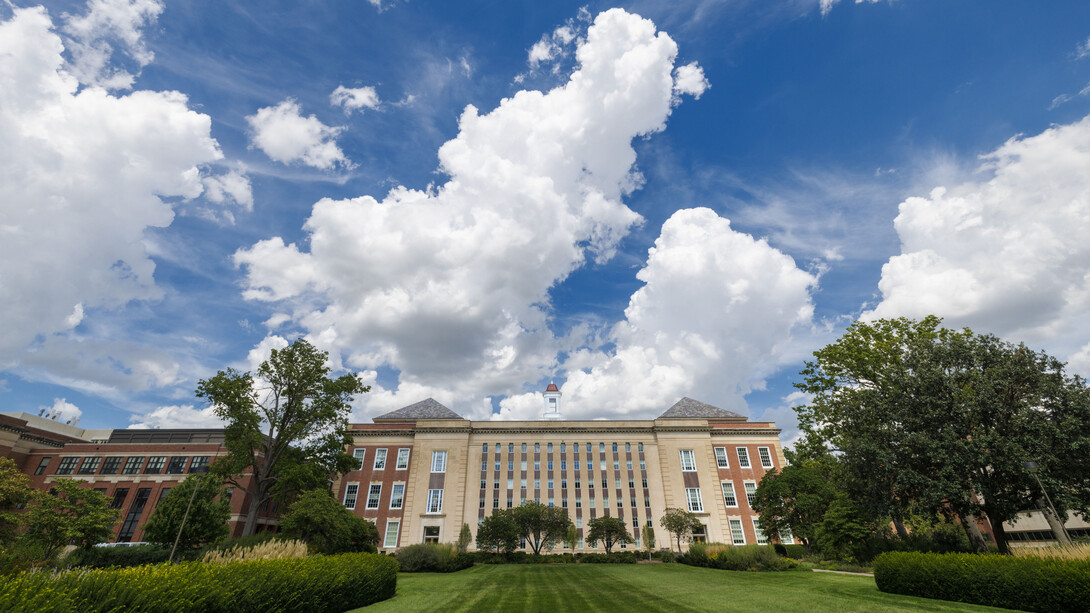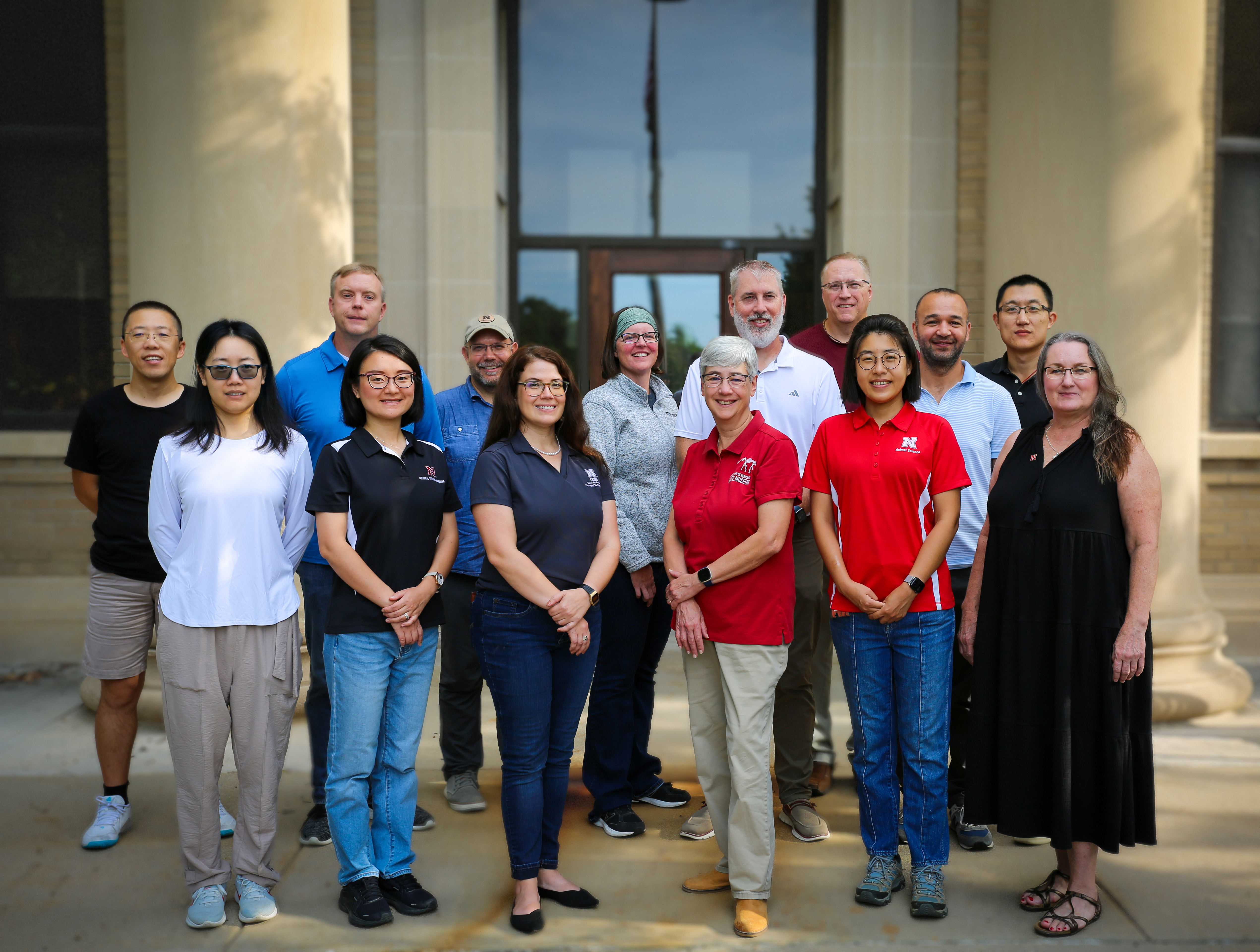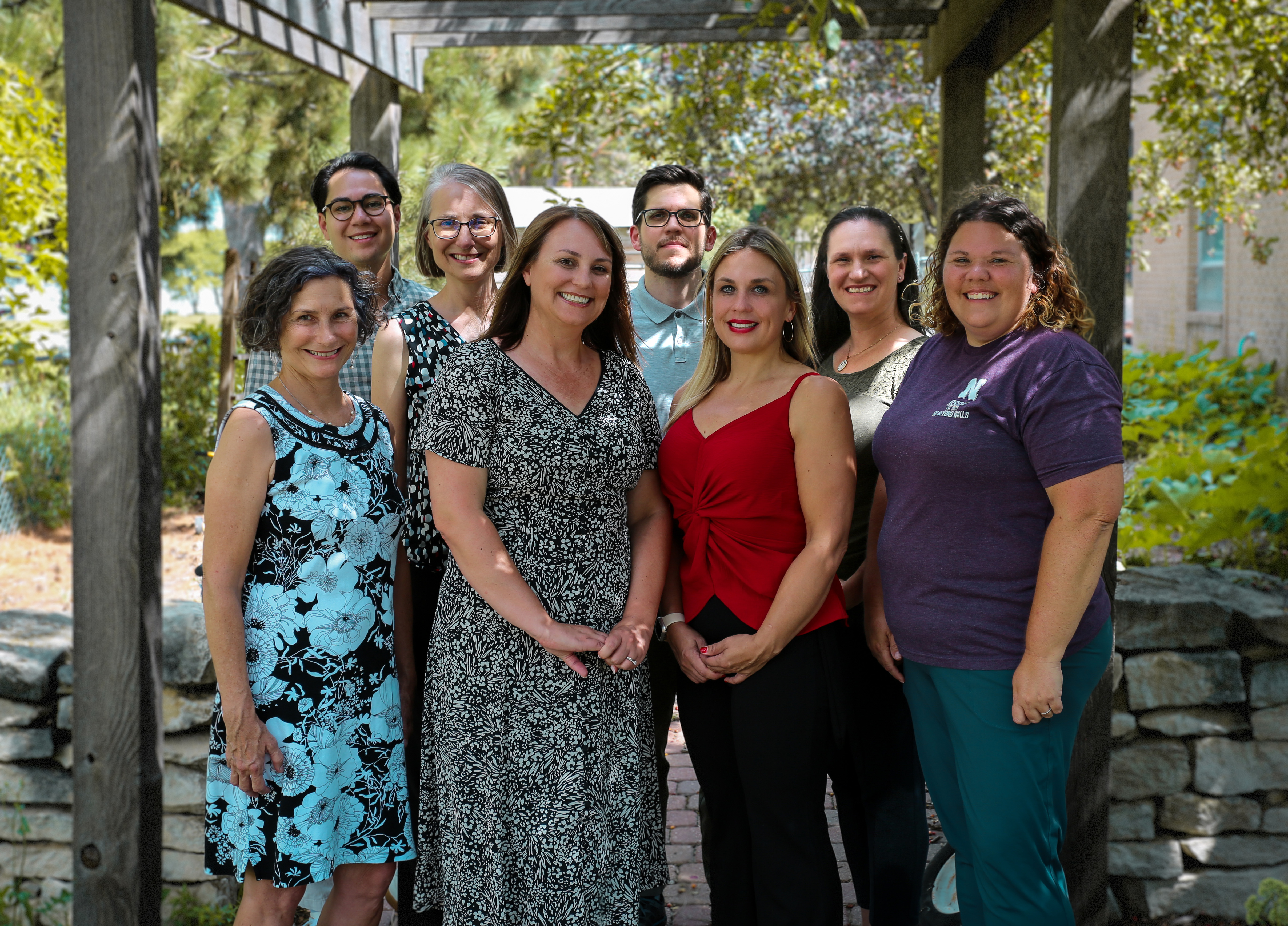
Bold, audacious research ideas that will improve the lives of current and future generations of Nebraskans have been funded through the University of Nebraska–Lincoln’s Grand Challenges Catalyst Competition.
Chancellor Rodney D. Bennett and Sherri Jones, interim vice chancellor for research and innovation, announced nine new Grand Challenges projects Sept. 3. Projects include two catalyst awards and seven planning grants.
The Grand Challenges initiative represents a commitment by the Office of the Chancellor and the Office of Research and Innovation to strategically invest funds earmarked for research.
“The Grand Challenges underscore the university’s dedication to advancing research that has meaningful impacts on our communities and future generations,” Bennett said. “This strategic investment empowers our researchers to address complex issues with creativity and collaboration, further establishing our flagship, land-grant institution as a leader in transformative and interdisciplinary innovation.”
Projects funded in 2024 address the initiative’s seven thematic areas: anti-racism and racial equity; climate resilience; early childhood education and development; health equity; quantum science and engineering; sustainable food and water security; and science and technology literacy for society.
“The Grand Challenges projects represent the qualities of discovery, creativity and innovation that define research at Nebraska,” Jones said. “I am incredibly proud of our faculty’s efforts to work across disciplines to build teams that are equipped to address some of society’s most pressing challenges. I look forward to celebrating the long-term impact of their work.”
Faculty, staff and students from all nine colleges are represented among the teams. The full list of funded projects and teams is available on the Grand Challenges website.
Catalyst awards
Galen Erickson, Nebraska Cattle Industry Professor of animal science; and a team of Anne Schutte, associate professor of psychology, and Sarah Karle, associate professor of landscape architecture, lead teams that earned catalyst awards. The funded projects will support the beef industry in Nebraska and beyond in adapting management practices for a changing climate, and the state’s early childhood education field in creating green spaces and physical environments that promote healthy development, especially for youth in under-resourced communities.
Advancing Development of Assessments, Practices and Tools (ADAPT) to Produce Climate Smart Beef in Grazing Systems
As consumers become more aware of how their decisions impact the environment, the beef industry is working to build consumer trust in production practices and find ways to improve. Newer incentive programs are based on beef producers demonstrating that their grazing operations improve carbon capture, decrease greenhouse gas emissions, or both.
A Grand Challenges award will bolster the university's efforts to support a sustainable beef industry, which researchers believe is crucial from an environmental, economic and social standpoint. The ADAPT project, led by beef expert Galen Erickson and a diverse group of faculty and staff from UNL’s Beef Innovation team, aims to establish resilient, climate-smart beef production systems that are tested and scientifically proven to be effective across many types of management practices, soil types, weather conditions, forage types and other factors. The Grand Challenges project aligns with larger efforts that recognize the importance of a sustainable beef industry from environmental, economic and social standpoints.
Nebraska consistently ranks as one of the top beef-producing states in the U.S., making it an ideal laboratory for the team’s work. Husker researchers will develop robust models and cost-effective integrated data-management tools that producers can use to measure carbon flux on their grazing lands. The team will use that data to test potential climate-smart management practices and evaluate effectiveness. This work will provide more information to guide production practice incentives and help shape policy affecting the cattle industry. The team will develop best practices for beef producers to reduce greenhouse gases and the carbon impact of grazing, while supporting a more biodiverse, resilient landscape in Nebraska and beyond.
Through communications and outreach activities, researchers will share scientifically accurate stories about climate-smart beef production and responsible land stewardship. Messages will be geared toward policymakers, environmental and land stewards, consumers and youth.

Transforming Environments: Promoting Children’s Health, Development and Learning Indoors, Outdoors and Beyond
Increasing studies suggest that physical environments — especially green spaces — are essential to young children’s health and well-being. But even in Nebraska, with its abundance of open spaces, there are disparities in who has access to the natural world for play and exploration. In low-income communities, for example, “built” environments are often more prevalent than green spaces.
Led by cognitive development expert Anne Schutte and landscape architect Sarah Karle, the project team aspires for every Nebraska child to have access to green spaces and environments that promote healthy development, especially in early childhood education and care settings. Many studies suggest that green-space exposure may lead to better outcomes for young children, including improved attentiveness, memory and emotional well-being.
The interdisciplinary team will establish a comprehensive community-based research program that integrates design, developmental science and educational outcomes to enhance children’s daily environments. Using behavioral and physiological measures, plus neuroimaging, researchers will assess how physical environments impact development and well-being.
Leveraging Nebraska Extension’s leadership in addressing complex issues at the local, state and national levels, the team will co-create solutions for Nebraska communities to enhance, improve and create healthy environments for young children and their caregivers. Working with the Early Childhood Health Outdoors program, the team will develop professional development resources to help educators incorporate green spaces — especially in communities with fewer resources. Researchers also will create experiential learning opportunities for College of Architecture students to learn how to design healthy indoor and outdoor environments, drawing upon research findings in psychology, architecture and education.

Planning grant awards
Planning grants support the teaming, ideation and development activities for teams to coalesce around one or more Grand Challenges themes and prepare a catalyst proposal. Funded projects and principal investigators are:
- Sina Balkir, professor of electrical and computer engineering, “Integrating Microelectronics in Precision Agriculture: Toward Energy-Efficient Sensing Solutions for Soil, Plant and Animal Monitoring.”
- Dan Novy, assistant professor of emerging media arts, “Thinking Outside the Box(plot): Cultivating a Culture of Creative Data Visualization.”
- Kyungki Kim, assistant professor, Durham School of Architectural Engineering and Construction, “Smart and Connected Long-Term Care Ecosystem with Robotic Caregiver.”
- W. Alex Mason, professor of child, youth and family studies, and Loukia Sarroub, department chair of teaching, learning and teacher education, “Ethical and Equitable Reintegration: Transitioning Youth from Out-of-Home Placement to the Mainstream Classroom.”
- Yanan (Laura) Wang, assistant professor of electrical and computer engineering, Christine Kelley, professor of mathematics, and Jordan Wheeler, assistant professor of educational psychology, “Education Landscape and Experiential Learning for Quantum Information Science and Technology Workforce Development.”
- Eileen Hebets, George Holmes Professor of biological sciences, Angela Pannier, Swarts Family Chair and professor of biological systems engineering, and Nicole Sexton, assistant professor of biological sciences, “Center for Arthropod Research, Education and Materials Innovation (CAREMI).”
- Milad Roohi, assistant professor, Durham School of Architectural Engineering and Construction, “Climate Resilient Heartland: Leveraging AI for Equitable Risk Reduction and Adaptation Across Rural and Urban Systems.”
The Grand Challenges initiative aligns with the university’s strategic goals to increase the impact of research and creative activity and to foster interdisciplinary endeavors. A request for proposals for the 2025 Grand Challenges grant cycle will be released by Oct. 1. Details will be announced on the Grand Challenges website.
Share
News Release Contact(s)
Tags
High Resolution Photos

HIGH RESOLUTION PHOTOS








